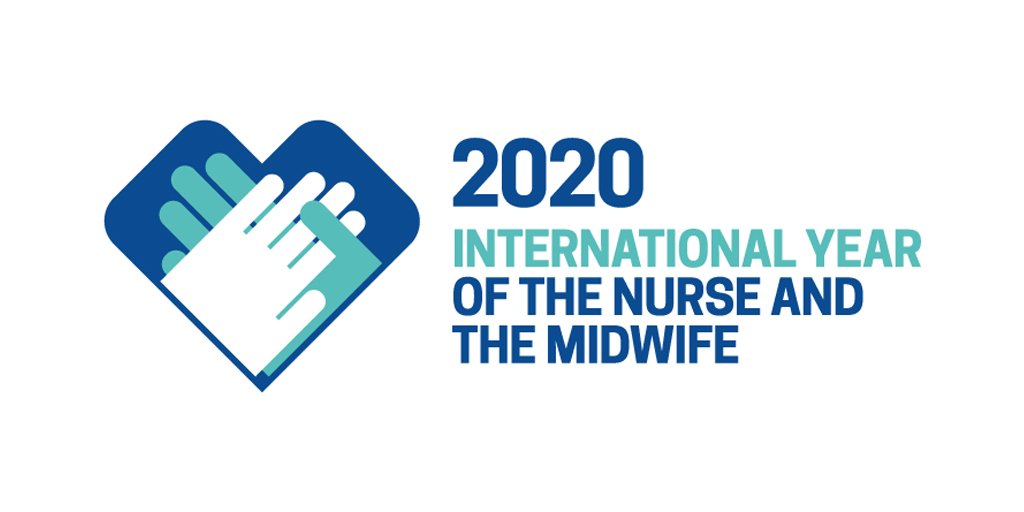April 23, 2021, by School of Medicine
30 at 30: The Year of the Nurse and Midwife in a Covid Age

When 2020 was named The Year of the Nurse and Midwife, I was working as the Director of Education and Student Experience within the School of Health Sciences at the University of Nottingham and we were celebrating 30 years of nursing at Nottingham. I finished the year working as Head of School of Nursing, Allied Healthcare Professionals and Midwifery back in the NHS in the UKs largest Trust, University Hospitals Birmingham NHS Foundation Trust. Whether working at the University or working in the NHS, this year has not been easy for anyone.
I have been a nurse for 35 years and worked across multiple specialities including intensive care, cardiac surgery, liver, trauma, burns and vascular surgery. I have been a clinical specialist, manager, educator and leader. Nursing has afforded me all these opportunities but the past 12 months have amazed me in terms of nurses’ versatility, capacity and assuredness.
We have essentially adapted the nursing process of assessment, planning, implementation and evaluation and applied this process to everything we have been asked to respond to. We have operationalised Nightingale (essentially a field hospital) in less than two weeks, we have delivered quality education to upskill staff to work in acute environments, we have operationalised a mass vaccination programme on an unprecedented scale, we have deployed and supported our healthcare students into the NHS and we have been asked to work across different specialities according to patient need. The importance of these transferable skills cannot be underestimated – the ability to apply knowledge on the ground, act, negotiate, communicate and be flexible have been a vital part of the healthcare professional response to the pandemic.
None of the above was done in isolation; we have worked as part of a whole team across the NHS from facilities, logistics, supplies, IT, administration, volunteers, multidisciplinary healthcare teams and worked with other organisations, especially our university partners. The teamwork, resilience and dedication has been inspiring. Not only have we led on the mass vaccination programme we are also at the forefront of research into COVID-19 and have recruited tens of thousands of people into clinical trials. This demonstrates the importance of research supporting and informing clinical practice. We will not be able to emerge from COVID-19 without the key contribution of research.
At the outset, we all rose to the challenge of COVID-19. After the first surge we began to realise we would have to live with COVID-19 long-term. The future remains uncertain and within the Trust, I am aware of compassion fatigue, desensitised staff and the huge toll this has taken on all our mental health and well-being. We manage complex emotions and physical fatigue with unpredictable surges of anxiety and motivation.
Within universities, students are coping with remote learning, loss of placement hours, working within a stretched healthcare service and the potential of delayed graduation. The vast majority of staff and students I speak to say that it has been the hardest year they have ever experienced.
We need to support, protect and encourage our healthcare teams. I believe we need to develop the skill of living with ambiguity. In the short-term, listening, observing and thinking is vital. We need to help peers to see the bigger picture, consider setting short-term goals so we still feel we are achieving and, as ever in healthcare, ensure effective communication. In the long-term, COVID-19 has created a new world and new opportunities but we don’t quite know what that looks like yet. Guidelines work but if the environment or conditions change, sticking to or reinforcing policies will not solve problems or necessarily mitigate risk within the new environment; a new reality requires new rules and a different way of thinking. The Government have recognised that streamlining bureaucratic processes has released time in order for healthcare staff to prioritise care. In the post-COVID-19 world it is hoped that bureaucratic burdens will be eased to enable staff to focus on patient experience and better healthcare outcomes.
We chose to be healthcare professionals for a reason and we cannot let COVID-19 overwhelm that purpose. We take hope from research that treatments will improve, we have learned from each surge and we have started vaccinating the UK population. The Year of the Nurse and Midwife and celebrating 30 years of Nursing at Nottingham has posed one of the greatest professional challenges but we have risen to this challenge. A new reality is dawning and with it will come a new energy and purpose.
By Dr Ruth Pearce
No comments yet, fill out a comment to be the first

Leave a Reply